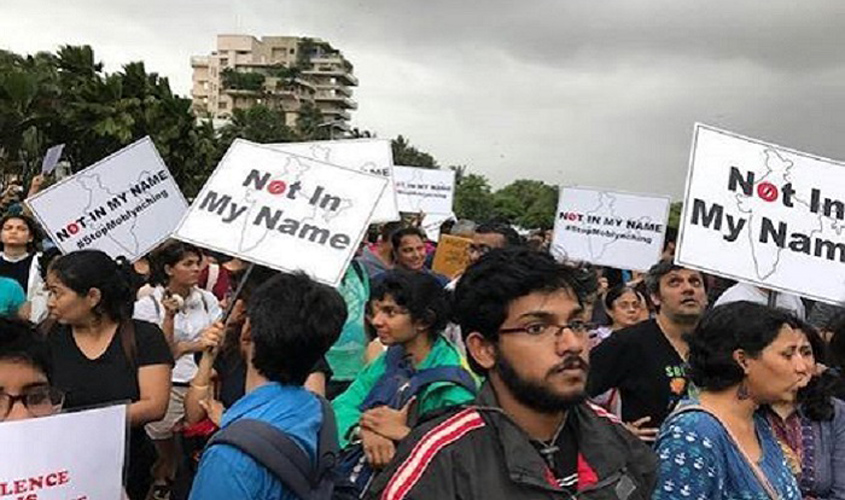 Lynching should not be allowed to become the most accepted form of public debate or protest, but this seems to be the case if the recent comment made by Jammu and Kashmir minister Imran Ansari, against a fellow legislator of the National Conference, is anything to go by. Repeated incidents of lynching—from that of Muhammad Akhlaq in Dadri in 2015 to Junaid Khan of Ballabhgarh in 2017—have laid the foundation of this practice and it seems to have gained nationwide acceptance. A recent high decibel debate on a news channel discussed how street protests about lynching (“not in my name” campaign) were bringing a bad name to the country and that it was deliberate intention of a few to malign the country. It was difficult to absorb the arguments that were being made on that channel, since the Prime Minister himself strongly condemned lynching and warned the rakshaks that they need to stop.
Lynching should not be allowed to become the most accepted form of public debate or protest, but this seems to be the case if the recent comment made by Jammu and Kashmir minister Imran Ansari, against a fellow legislator of the National Conference, is anything to go by. Repeated incidents of lynching—from that of Muhammad Akhlaq in Dadri in 2015 to Junaid Khan of Ballabhgarh in 2017—have laid the foundation of this practice and it seems to have gained nationwide acceptance. A recent high decibel debate on a news channel discussed how street protests about lynching (“not in my name” campaign) were bringing a bad name to the country and that it was deliberate intention of a few to malign the country. It was difficult to absorb the arguments that were being made on that channel, since the Prime Minister himself strongly condemned lynching and warned the rakshaks that they need to stop.
The news media has set a new low while reporting incidents of crime against communities, especially Dalits and Muslims. While the easy availability of mobiles has resulted in highlighting these cases
The country does not have a proper mechanism for testing pre-natal abnormalities, allowing couples to abort babies with abnormalities before 20 weeks, neither does it have a proper legal system to deal with it. A law to criminalise lynching will take time.
Lynching in the name of religion, and bigotry of this kind is going to kill all of us if we rather fume over beef than look at other important issues plaguing our country like farmer suicides, water shortages and environment degradation. We are okay with consuming pesticide-laced water, but not ready to let our neighbour have the freedom to eat the food of his or her choice. The arrest of a man from Aligarh boarding a train to see an ailing cousin, wearing a burkha to conceal his identity to escape lynching should be a warning to all of us. Of course, this is not something new as some would say, these incidents of loot, mob attacks and mob violence were an everyday affair a few months after partition. But partition was an extraordinary circumstance and the recent incidents are a deliberate act of people who desire ethnic cleansing in the name of cow, beef and anything else they can lay their hands on. It is certainly not about the cow, because if it was, cows in this country wouldn’t be chewing and choking on plastic bags. The communal tensions in Bengal have only caught media attention recently, although close observers would argue that problems in Bengal and the Northeast have been around for a while
The opposition sits pretty, unable to grasp the magnitude of the problems and its failure to recover from its inability to provide a coherent narrative or agenda. Its attitude towards lynching has been somewhat disappointing. The “not in my name” campaign was the work of a few activists, professors, students and ordinary students. To say that the Congress or any other party had a role to play in organising a nationwide campaign, would be giving too much importance to the feeble and tired grand-old party, which has not only lost its numbers, but its old character.

